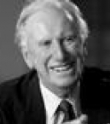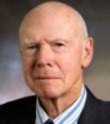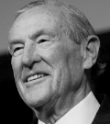Expert Panel-Fellows of the AIIA
|

Hilary Charlesworth FAIIA-Professor, ANU; Director of Centre for International Governance and Justice |  Jocelyn Chey AM FAIIA-Visiting Professor, University of Sydney; former Consul-General in Hong Kong |  James Cotton FAIIA-Emeritus Professor at the University of NSW |  Rawdon Dalrymple AO FAIIA-Former Visiting Professor, University of Sydney; Chairman of ASEAN Focus Group Ltd |  Graeme Dobell FAIIA-Journalist Fellow, Australian Strategic Policy Institute |  Erika Feller FAIIA-Former UNHCR Assistant High Commissioner for Protection |  Janet Hunt FAIIA-Former Head of the Australian Council for Overseas Aid |
 James Ingram AO FAIIA-Former Diplomat and Head of the UN World Food Program James Ingram AO FAIIA-Former Diplomat and Head of the UN World Food Program |  John McCarthy AO FAIIA-Former Ambassador to Japan, Indonesia, the United States, Thailand, Mexico and Vietnam John McCarthy AO FAIIA-Former Ambassador to Japan, Indonesia, the United States, Thailand, Mexico and Vietnam |  Geoffrey Miller AO FAIIA-Former Australian Ambassador to Japan; former Director-General of the Office of National Assessments Geoffrey Miller AO FAIIA-Former Australian Ambassador to Japan; former Director-General of the Office of National Assessments |  Robert O’Neill FAIIA– Former Chichele Professor of the History of War, Oxford University Robert O’Neill FAIIA– Former Chichele Professor of the History of War, Oxford University |  Garry Woodard FAIIA-Former Diplomat and Senior Fellow, University of Melbourne Garry Woodard FAIIA-Former Diplomat and Senior Fellow, University of Melbourne |  Richard Woolcott AC FAIIA-Former Secretary of the Department of Foreign Affairs and Trade Richard Woolcott AC FAIIA-Former Secretary of the Department of Foreign Affairs and Trade |  Samina Yasmeen AM FAIIA-Professor of Political Science and International Relations, University of Western Australia Samina Yasmeen AM FAIIA-Professor of Political Science and International Relations, University of Western Australia |
Question: Will a new Prime Minister affect Australia internationally?
 Robert O’Neill FAIIA Robert O’Neill FAIIA | Yes. Malcolm Turnbull knows his way around the world and is used to international negotiations and discussions from his legal, banking and other business work. I expect him to be smoother and more nuanced than Tony Abbott. He will look more at the cost side of the balance sheet in considering military intervention.I also expect continuity in the substance of our foreign policy, due not least to Julie Bishop’s enduring strength and influence, and the advice flowing from a strong Department of Foreign Affairs and Trade. |

Richard Woolcott FAIIA | Yes. I believe Prime Minister Malcolm Turnbull will gradually seek to shape a more balanced and updated foreign and security policy, more responsive to the greatly changed world of 2015. It will be more focused on Australia’s real national interest, on the Asia-Pacific region and, hopefully, less on the very complex issues in the Middle East and not on exaggerated fears of the IS, to which we can make only a symbolic and peripheral contribution. Such changes will be welcomed by China, Indonesia, India and Russia and will come to be accepted in by the US and Japan. |
 John McCarthy AO FAIIA John McCarthy AO FAIIA | Yes … and all positive. Policy regarding United States will not be much different in essence, but more nuanced. The same can be said for China. The rhetoric will be more sensible and issues may be looked at again in the context of the white paper. With regards to Japan and India, Turnbull will keep up the good work but there may be less emphasis on defense side and I am not sure where this will leave the submarine deal. Regarding the Middle East, it may be too late for him to influence Syria issues, but the rhetoric will shift and there will be much less nonsense in public utterances. There will be a much more sensible approach on refugees and border control. He will be careful given the nature of politics but may just show real leadership on numbers – not on the same scale as Germany, but in terms of commitments over longer term. Australia’s reputation will increase in South East Asia almost overnight; Australia had ceased to be taken seriously. There may be some shift on climate change policy. |
 Garry Woodard FAIIA Garry Woodard FAIIA | Indonesian President Suharto commented that much was made of Indonesia’s political instability but in his time he had seen several prime ministers of Australia come and go. The phenomenon has increased dramatically, making it all the more necessary for us to see ourselves as others see as and to avoid being loud and judgmental. The new Prime Minister will surely bring a different style and greater caution, particularly about rushing into war in the Middle East or secret military commitments in Northeast Asia. His more measured and consultative approach could avoid the sort of problems which have become unnecessarily divisive over the Australia-China FTA, which did not arise over the FTA’s with South Korea and Japan. It seems likely that he will attract an olive branch from Barrack Obama, perhaps at the environmental summit. He will need his own man in Washington. |
 Samina Yasmeen AM FAIIA Samina Yasmeen AM FAIIA | The change will definitely make the international community wonder why we change Prime Ministers so frequently. But some strands of foreign policy might not. We cannot avoid developments in the Middle East and South Asia due to direct and indirect impact on our society. So the new PM would have to deal with the pressures. But the narrative used for these developments is likely to change. |
 Rawdon Dalrymple AO FAIIA Rawdon Dalrymple AO FAIIA | Malcolm Turnbull will probably have more urgent domestic policy matters to address for the first weeks than the shape of our foreign policy. But he will be faced immediately with the need to address the CFMEU/ALP attempt to disrupt the finalization of the China trade agreement which has taken so long to conclude and which is so important to our relations with our biggest trading partner and our future prosperity. This will be a crucial early test of his leadership. It overshadows in importance other foreign policy issues. Besides that he will need to pay early attention to relations with Indonesia. The Abbott (and Bishop) hyper-ventilating over President Widodo’s refusal to intervene to save the two drug-smugglers has to be put in the past and left there. We need a more matter-of-fact lower key relationship with Indonesia which shows respect but does not overlook the deficiencies on their side. We have a body of officials under Peter Varghese which can advise and support Turnbull on this. We are probably stuck with the bombing campaign extension into Syria because of the implications for the relationship with the US if we stopped it now.It is to be hoped that Turnbull and Bishop resolved any differences on foreign policy between them before they moved against Abbott. Bishop has such high and favourable prominence as Foreign Minister that it could be costly to shift her so that points to a continuation of the main lines of our foreign policy. The Abbott decision to take 12,000 refugees from Syria should keep that area quiet for the rest of this electoral cycle at least (and I find it surprising that this has not been contrasted with the US decision to take 10,000).Kevin Andrews made it clear on the ABC this morning that he thinks he should be kept at Defence because we are facing such a range of enormous (by Australian standards) and imminent acquisition decisions that it would take a new minister too long to understand in detail. He may be right even if Turnbull has to tell him to keep a lid on some of his social policy views at least until after the election next year. |

Hilary Charlesworth FAIIA | One area of international interest where Malcolm Turnbull has markedly differed from his predecessor is in his support of the Australian Human Rights Commission and its President, Gillian Triggs. Earlier this year, at the height of the attacks on the AHRC, Turnbull spoke out to support the idea of a fully independent Commission and refused to join his Cabinet colleagues in their extraordinary attack on Professor Triggs, noting instead her distinguished record. This change of approach to Australia’s National Human Rights Institution will bolster Australia’s campaign to be elected to the UN Human Rights Council. |
[really_simple_share]
Past Questions
February 24, 2015
Can Australia and Indonesia be Good Friends?
October 26, 2014
Can Australia Remain a Top 20 Nation?
September 17, 2014
Should Australia Deploy Troops to Iraq?
September 9, 2014
Should Australia have Closer Relations with NATO?
July 25, 2014
Are Expectations of Australia’s International Influence Unrealistic?
July 1, 2014
Is Australia Powerless to Help its Citizens Abroad?
June 23, 2014
What are Australia’s Responsibilities in Iraq?
June 10, 2014
Is China Destabilising Asia?
May 9, 2014
Is the US a Dangerous Ally for Australia?
April 28, 2014
Did you find Bob Carr’s ‘Diary of a Foreign Minister’ enlightening?
April 14, 2014
Is Australia’s economic diplomacy succeeding?
April 04, 2014
Is Japan Australia’s best friend in Asia?
March 24, 2014
Three years on, has enough been done on Syria?
More questions >>
















